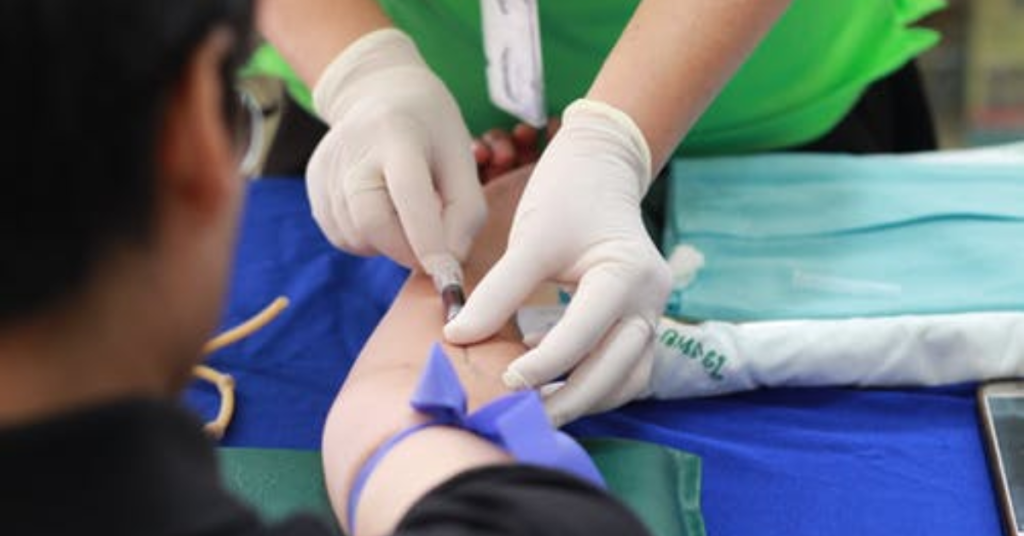It is very common to have high cholesterol and triglyceride levels called a lipid disorder. If you have a lipid disorder, it means you have high levels of fats called triglycerides and high blood levels of low-density lipoprotein (LDL) cholesterol. When you have too much of these substances in your blood, it can increase your risk of developing heart disease. Our award winning primary care physicians and Manhattan internal medicine doctors in NYC are experts in treating high cholesterol.
What Is Cholesterol?
You have two types of cholesterol in your body, which are LDL cholesterol and high-density lipoprotein (HDL) cholesterol. LDL is frequently referred to as bad cholesterol, and your body can make it, or it is absorbed from foods that are rich in cholesterol such as dairy products and red meat.
LDL cholesterol can also combine with substances and other fats in your blood, creating blockages in your arteries. When your arteries become blocked, it reduces blood flow and can cause serious health problems like heart disease and heart attacks or stroke.
It is preferable to have a higher level of HDL cholesterol, which is sometimes called good cholesterol because it has a protective effect on your heart, transporting harmful LDL-cholesterol out of your arteries.
What Are Triglycerides?
Triglycerides are a type of fat mostly obtained from food, but your body can also produce triglycerides when it converts excess calories to fat for storage.
You need some triglycerides for specific cell functions, but it is unhealthy if you have high levels of triglycerides. Like LDL, lower levels of triglycerides are considered preferable.
What Are the Main Causes of High Cholesterol and High Triglycerides?
The main cause is consuming foods that are known to increase cholesterol levels, and which contain saturated fats or trans fats. Most saturated fats are found in animal-based foods like milk, cheese, butter, and steak but are also present in some plant-based foods like coconut oil and palm oil. Trans fats or trans fatty acids are considered worse than saturated fats because they can increase LDL levels while lowering HDL levels.
Some animal products naturally contain trans fats, but others are found in processed foods, for example, potato chips and margarine.
Inherited Risks or Medical Conditions
High levels of cholesterol can also be inherited; for example, a condition called familial hypercholesterolemia, which is a genetic disorder passed down through families. It is a genetic mutation that prevents the liver from removing LDL cholesterol from the blood. Certain medical conditions can also increase the risk of high blood cholesterol and which include diabetes, kidney disease, metabolic syndrome, hypothyroidism, Cushing’s syndrome, and polycystic ovary syndrome.
Some medications, for example, diuretics, can increase cholesterol levels.
Lifestyle Factors
A lack of exercise can increase LDL levels while taking exercise has been shown to increase healthy HDL levels. Smoking can increase LDL levels by causing plaque to build up in the arteries.
Diagnosing High Blood Cholesterol and Triglyceride Levels
Frequently, high cholesterol won’t cause any symptoms unless it has caused significant damage resulting in heart disease. This is why it’s important to have regular cholesterol checks with a blood test called a lipid profile. It is especially important to have your cholesterol levels checked if there is a family history of high cholesterol or heart disease.
A lipid profile measures both types of cholesterol and triglycerides. It is also known as a fasting blood test as you must avoid eating and drinking anything other than water for at least 8 to 12 hours beforehand. If you are diagnosed with high cholesterol, our physicians can discuss how to treat high cholesterol most effectively for your needs.
High Cholesterol Treatment Options in Midtown NYC and New York
There are several types of medications that our doctors are using to treat high cholesterol levels.
Statins
Statins are commonly prescribed as they are very effective and prevent your liver from producing a substance that creates cholesterol. Your liver can then remove cholesterol from your blood. Statins can also absorb cholesterol in your arteries.
Cholesterol Absorption Inhibitors
These can lower cholesterol levels by limiting the amount of dietary cholesterol your body absorbs and are sometimes prescribed with Statins.
Bile Acid Sequestrants
This medication is designed to trap bile resin containing cholesterol, preventing it from being reabsorbed in your small intestine.
High Triglycerides Treatment in Midtown NYC and New York’s Upper East SideFibrates
Fibrates are medications used for triglycerides treatment, and that can help lower can reduce triglyceride levels in your blood.
Supplements
Supplements can also be useful for high cholesterol treatment and triglycerides treatment. For example, omega-3 fatty acids are polyunsaturated fats contained naturally in oily fish like salmon. Some plant oils like olive oil and canola oil also contain omega-3 fatty acids. Niacin can increase levels of HDL cholesterol and is available over the counter or is prescribed. We can advise you about using supplements safely and effectively.
How to Treat High Cholesterol Using Lifestyle Changes
Any New York’s best internist would recommend lifestyle changes in conjunction with high cholesterol treatment. Ensuring you follow a healthy diet and receive enough exercise can help to reduce cholesterol levels. It’s recommended that you exercise for at least 30 minutes each day, for four days a week. However, it is important to exercise appropriately for your fitness level, and we can advise you on suitable exercise programs to follow. Ideally, no more than 6% of your daily calories should come from saturated fat, and it is advisable to avoid foods with trans fats whenever possible.
Get into the habit of reading food labels and choose foods containing polyunsaturated fats and monounsaturated fats. Eating plenty of fruits and vegetables and whole grains can also help decrease high cholesterol and triglyceride levels. Try to avoid eating fast food, processed meats, and junk food, and choose grilled and roasted foods instead of fried foods.
It’s advisable to reduce alcohol intake because alcohol can increase triglyceride levels.



